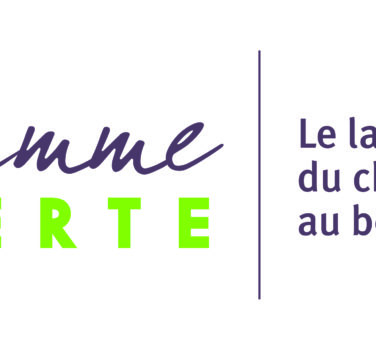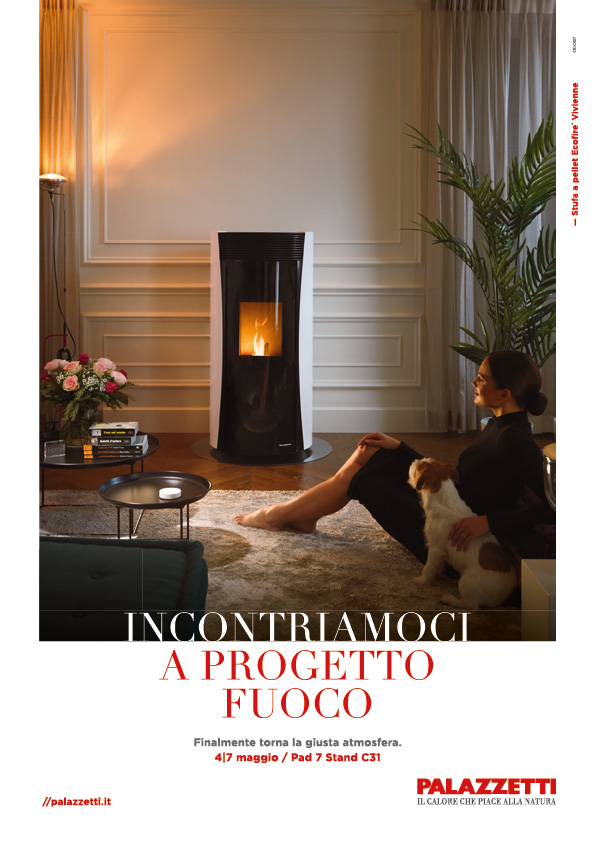
- 0
- 1K
- 0 likes
React to Coronavirus
What the leaders or the sector think and suggest to restart after the health emergency

This is the spirit in which in mid-April – in the middle of the lockdown to fight the coronavirus epidemic – Progetto Fuoco decided to launch an online questionnaire for its partners and exhibitors. We asked them some questions in order to gauge feelings in the sector, to understand the repercussions of this unprecedented situation, and to discover the strategies that are now being employed to cope with it, as well as the measures that may help us to recover from it.
It doesn’t purport to be objective, but rather to keep people connected, pooling our thoughts on how to bounce back. The re-opening of manufacturing and wholesale commerce on the 4th of May – the so-called Phase 2 – is the first real test.
Strengthening pre-existing schemes to support demand, like Ecobonus and Bonus Casa, but also supporting credit and unemployment benefits for companies: these are the most urgent measures according to the voluntary and anonymous responses to our questions
Out of every 10 companies surveyed in the wood-fired heating sector, 4 are involved in manufacturing and 6 in distribution. Uncertainty is the prevailing sentiment, reflecting the feelings of ordinary citizens, in Italy and around the world.
With the help of some infographics, let’s examine the results of the survey, starting from the beginning: How much have the Covid-19 crisis and the subsequent containment measures affected revenue?
Almost half of all companies (47%) have seen revenues collapse by 75% or more in recent weeks, compared to the same period in 2019. For one in five companies the fall has been between 50% and 75%, and for 22% of companies the fall has been between 25% and 50%.
The crisis is hitting manufacturing companies harder: 52% of them have lost more than 75% of their revenue, a figure which among distribution companies falls to a still shocking 44%. These figures aren’t surprising, considering that 65% of manufacturing companies have come to a complete standstill during the lockdown, and 26% have been partially closed. Only 6% have been able to continue working while respecting the safety regulations imposed as part of the measures against Covid-19 agreed by the government and social partners.
What strategies have our partners and exhibitors adopted to avoid their businesses coming to a complete halt, and to devise new development pathways? The answers tell a two-sided story. Few companies (9%) have invested in creating or improving e-commerce or home delivery systems.
Many more companies report having increased investment in research and development aimed at creating new products, as a result of the spread of the SARS-CoV-2 virus.
39% of surveyed companies think that this crisis will lead to the creation of new products and new market segments. Which products will consumer preferences
shift to?
Our survey revealed numerous ideas and suggestions: cheaper products, at low cost and which guarantee high output and efficiency, modern fireplaces, wood-fired boilers, pellet stoves, small stoves, and ecofriendly systems.
In terms of commerce, we wondered in which directions Mass Market Retail will move in order to respond to the new needs created by obligatory social distancing. We asked our partners and the answer 71% of them gave is that large retailers will strengthen – as they are already doing – their online purchase and home delivery systems. Looking ahead to next winter, the uncertainty caused by the very real possibility that we may have to live alongside the virus, finding new ways to work and socialise, are reflected in an unclear view of the economic future. More than three quarters of respondents (76%), are unsure of what to expect regarding the future of their company. 17% were pessimistic, expecting negative consequences. Only 7% of exhibitors and partners were optimistic about the future, having positive expectations despite the current challenges.
In second place is support for credit for companies, essential according to 26% of respondents. 14% think more support for unemployment benefits is an urgently needed measure.
The enlargement of tax credits by the government met with the approval of 12% of
respondents.
One in ten of our surveyed companies thinks greater investment in research and development is necessary, while one in twenty thinks that mergers and partnerships between companies would make them more competitive in an ever-tougher market.
The remaining 4% proposed solutions such as the government providing injections of non-repayable liquidity for companies, and a drastic reduction in taxes and bureaucracy.
The coronavirus crisis is connected to the collapse in oil prices, an event with the potential to destabilise the global economic balance.
When asked how they feel the coronavirus emergency will impact on the wood-fired heating market, 38% of respondents said that the crisis will hinder the sector, with the fall in oil prices playing an important role.
37% feel that the sector will be hindered by factors unrelated to the oil market. 17% feel that the Covid-19 emergency won’t harm the wood-fired heating sector at all, while 8% think the emergency will favour the sector.
Moving on to the economic measures the market needs in order to bounce back after the novel coronavirus, the most popular among the options we presented to respondents was the strengthening of the Ecobonus and Bonus Casa for families, which 29% of respondents considered to be necessary.
Revenue
The winter of 2019-2020, before the onset of the pandemic, was positive for 43% of the companies interviewed, stationary for 42% and negative for 14% of them. The situation has clearly worsened with the spread of the Coronavirus and the consequent containment measures.
Production turnover trend
- 75% OFF OR MORE
- DROP BETWEEN 50% AND 75%
- DROP BETWEEN 25% AND 50%
- LESS THAN 25%
- NO SIGNIFICANT CHANGES
- INCREASE
Andamento fatturato distribuzione
- CALO DEL 75% O SUPERIORE
- CALO TRA IL 50% E IL 75%
- CALO TRA IL 25% E IL 50%
- CALO INFERIORE AL 25%
- NESSUNA VARIAZIONE DI RILIEVO
- INCREMENTO
We asked companies to estimate the contraction in turnover during the lockdown: almost one in two companies (47%) saw a drop in turnover equal to or greater than 75% compared to the same period in 2019. For one in five (20 %) the decline was between 50 and 75%. For 22% of companies, the decline is estimated between 25% and 50%. Only 3% reported a decrease of less than 25%. 6% did not experience significant changes, while 1% of the sample noted an increase.
The crisis is hitting production companies most strongly: 52% of these have lost 75% or more of their turnover, a share that among the distribution companies drops to the still impressive figure of 44%.

Investments in research and development
In the wake of the crisis due to the spread of the COVID-19 virus, has your company stepped up its investments in research and development to develop new products?
To this question, posed to companies in the production sector, 44% answered affirmatively, while 56% did not invest in R&D.

E-Commerce
Online sales platforms are an overall very growing channel during the lockdown period. However, not many companies in the biomass heating systems and equipment sector have moved in this direction. Following the crisis due to the spread of the COVID-19 virus, has your company activated or enhanced e-commerce and / or home sales solutions? To this question, 91% of companies in the production area responded negatively.
Solutions
We arrive at the economic measures that the market needs to be able to restart after the crisis of the new Coronavirus. What do you think the market mainly needs to restart?
- A
- B
- C
- D
- E
- F
- G
Among the options we have presented, the most popular is the strengthening of the eco-bonus and the home bonus for families, which is necessary for 29% of the audience (A).
In second place we find the support of business credit, an essential theme according to 26% (B).
Support for layoffs is an urgent measure for 14% of companies (C).
The extension of the tax credit by the state obtains 12% of the consents (D).
For one in 10 respondents, more investment in research and development is needed (E).
For one out of every 20, however, it would be useful to arrive at mergers and aggregations between companies, to make them more competitive in a market that looks increasingly tough (F).
In the remaining 4% we find the other solutions to urgent problems proposed by the interviewees: non-repayable liquidity from the state to companies, a strong reduction in taxes and bureaucracy (G).












